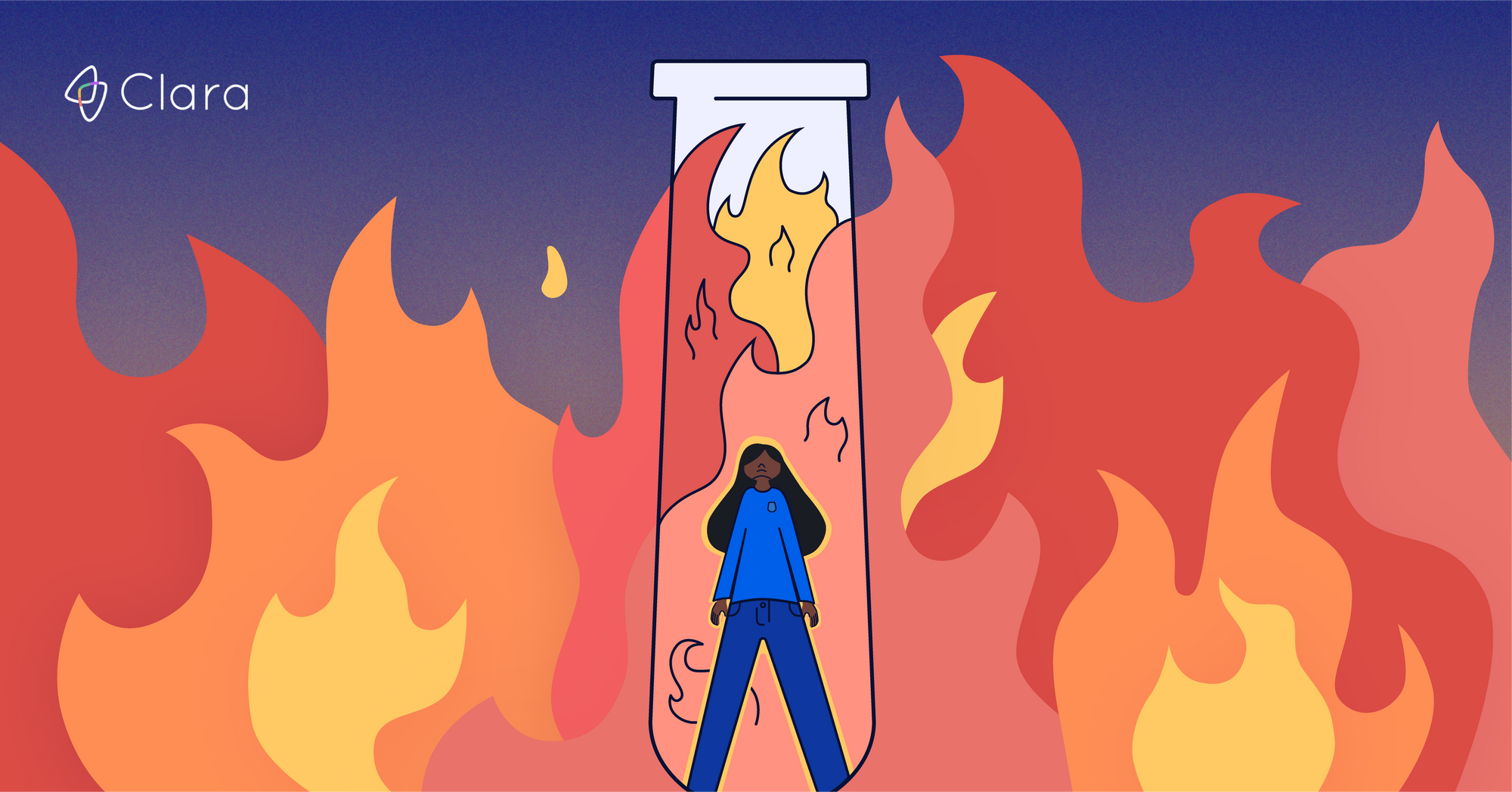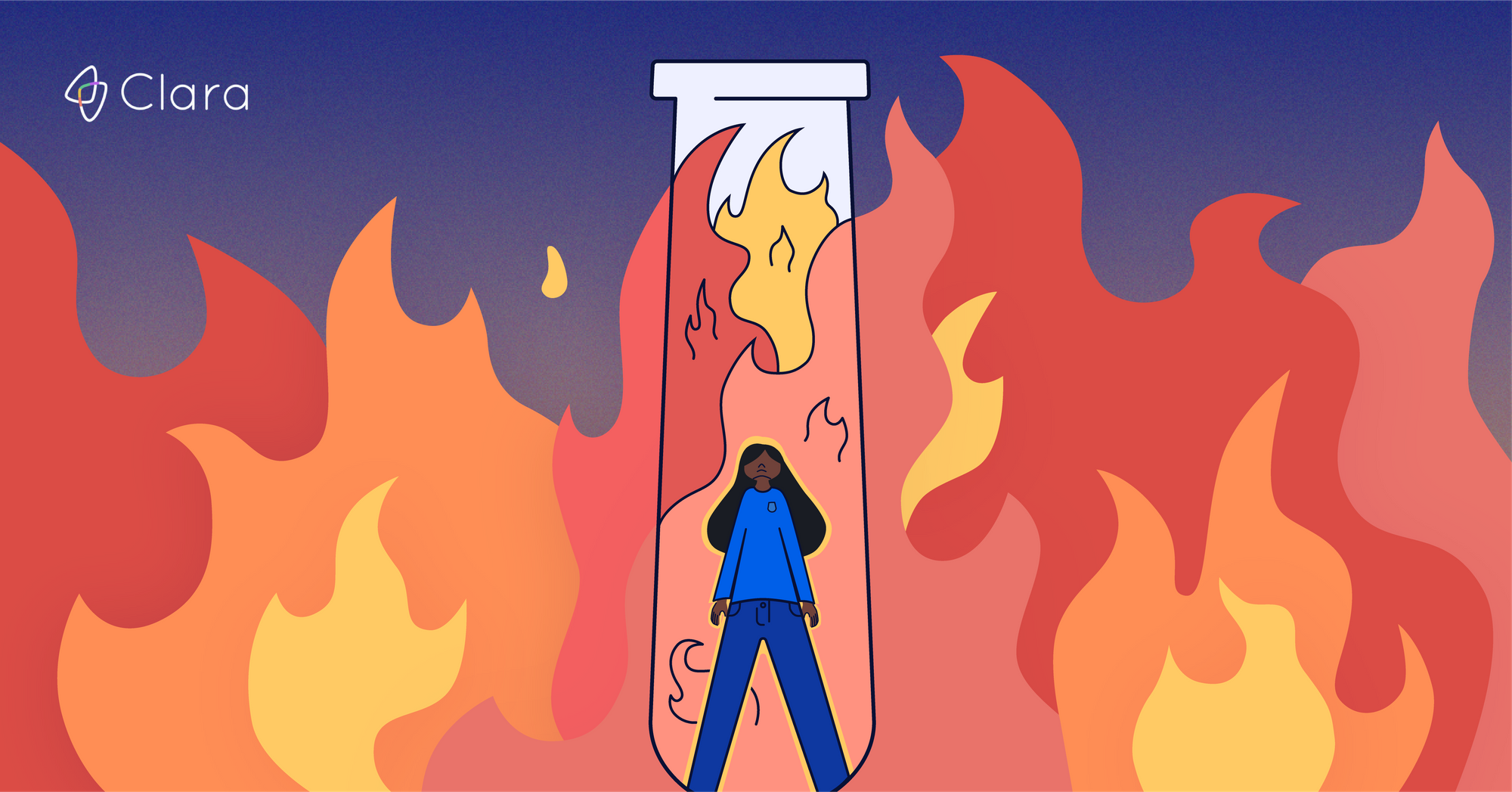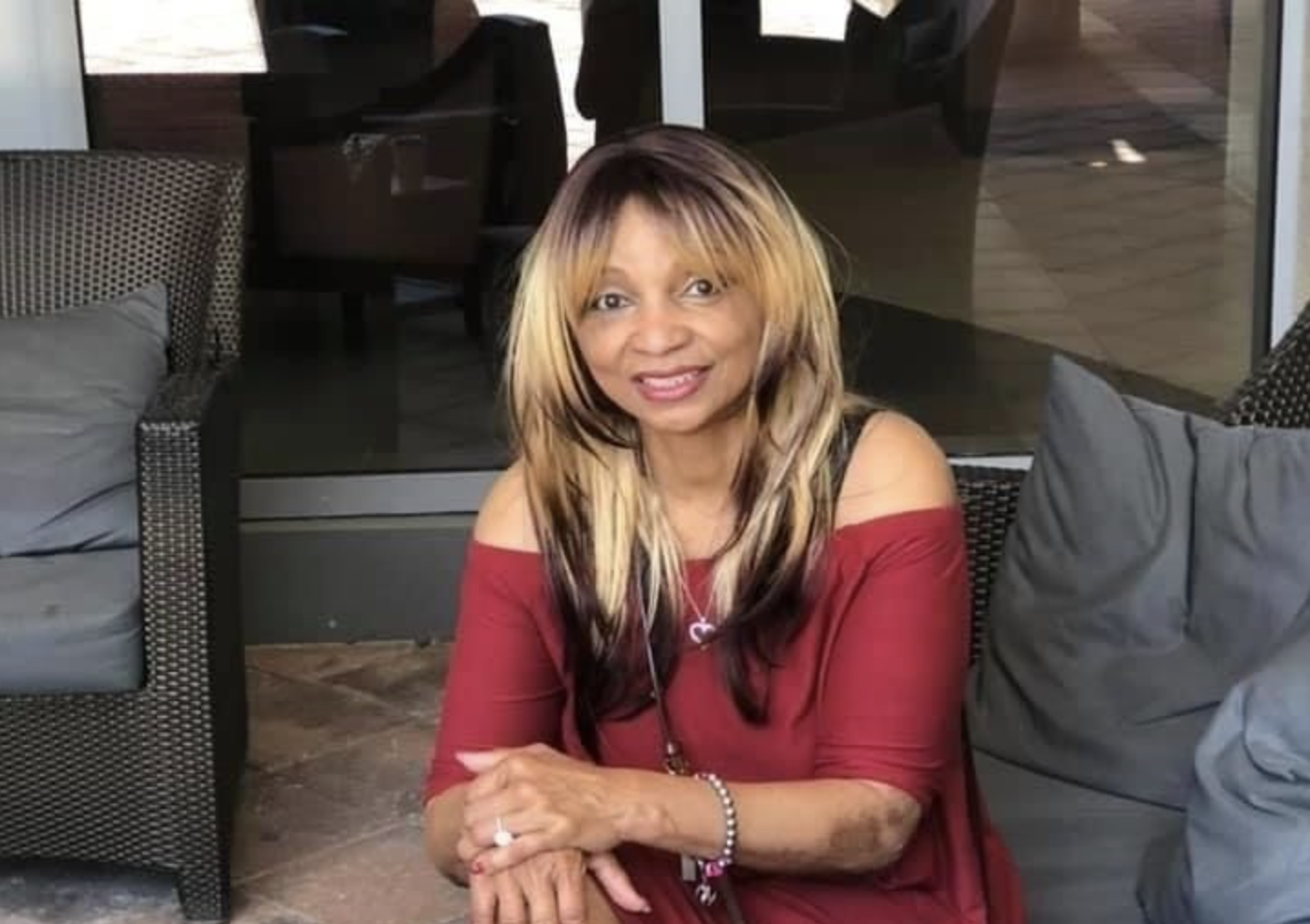Hello, everyone and welcome to the Patients Have Power podcast! Our latest Patients Have Power episode is called "My heart is tipped over.", (You can subscribe to the podcast at Apple Podcasts, or listen to it with the media player above).
Today, we have Ms. Molly Sarah with us. She is an incredible advocate living with a few different rare diseases. She is a brilliant writer and does quite a bit of writing on her website, Molly Sarah Writes. I want to let her talk to you a little bit about her journey today and then we'll dig into a conversation surrounding all of this, but she just has such a wonderful personality and I think we're going to have a lot of fun.
Below is a transcript of the episode for your reading pleasure!
Lilly Stairs: Thanks for being here today, Molly!
Molly Sarah: Hi everyone! You want me to just talk from the beginning?
Lilly Stairs: I think you can, yeah! Why don't you give us the best - what I've been saying now is "elevator pitch" - but not 30 seconds, like five minutes of your journey, of what you've been through thus far as a patient and advocate.
Molly Sarah's journey with misdiagnosis
Molly Sarah: Okay, so my diagnosis - my road to diagnosis, rather, has been kind of weird and not your straightforward "I'm in pain, let's see a doctor."
I grew up with a lot of leg and back pain, but the doctors told my mom:
"You know what? She's having growing pains. She'll grow out of it."
Turns out the first time, they were wrong about that, I was growth hormone deficient. I took injections with growth hormones. I grew to be of average height, I'm 5'4", but kind of short. The pain went away for a while.
Then I hit puberty.
I had my first period, it came back. Again, my mom was told, "You know what, this is normal. She's going through puberty. She'll grow out of it."
Okay.
Again, it went away for little while, came back when I was in college. Doctor told me, "You know your back, whenever you're stressed out. You're a college student." This is a repeat event in my life of being told. I haven't had that it's all in my head, but it has been blamed on other things.
And then I decided to play roller derby.

Lilly Stairs: Oh, interesting.
Molly Sarah: Right? I mean, of all of the things that I could have wanted to do with a life of back pain (unexplained back pain), I decided to play roller derby. So, there was that. I needed to check that off my bucket list.
So I was playing roller derby for a few months when I fell and dislocated my hip. The one time you'd think you could actually find a reason for being in pain (I mean, I fell). Logically, you would think that my hip dislocating would be the source of my pain.
Molly Sarah: Turns out that my hip never healed, it still hasn't healed, and this is almost four years on. My hip has never been the same. It was actually my mom suggested that I see a rheumatologist for all of this unexplained joint pain. And this is where it gets weird.
The first thing that the rheumatologist said to me when he walked in the room was,
"Oh my God. I got one."
I didn't know what he got or what was going on, but he took one look at me, "Oh my God. I got one." He runs out of the room, I don't know what's going on, he comes back with literally, I counted, six of his colleagues. They're all looking at me, they're all poking and prodding, without my permission, mind you. And then he finally says,
"You have Ehlers-Danlos."
Now, what even is that? My mom said that she'd read about it when I was younger about is it really growing pains, but she listened to the doctor and he told her it was growing pains, so she wasn't going to pursue it any further.
We're taught to trust doctors, which ties into, actually, patients have power. Second opinions are always great. Even a third opinion. I wish that I'd known that years ago because it could have saved me a lot of being in pain and all of that. But I'm here now, so I can advocate for it because I didn't know about it until recently.
So, I got an initial diagnosis with Ehlers-Danlos with no subtype. There are 12, I think 13 subtypes. I was diagnosed with the vascular subtype. Now I know, woo ... Oh, spooky.
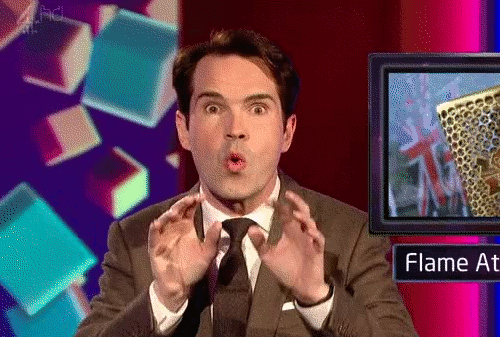
Molly Sarah: My goal in advocating for Ehlers-Danlos is for all subtypes but mainly, because I have vascular type, I'd like to break the stigma of
"You hear vascular and you think death."
Currently, not dying, so actual person here with VEDS. Not currently dying, so I would just like to put to rest that as soon as you hear vascular, you need to buy a funeral plot.
Lilly Stairs: Well, I think that's really important, and I want to just take a step back here just for our listeners who aren't as familiar with Ehlers-Danlos and V.E.D.S. I think you're referring to it as VEDS, is that correct?
Molly Sarah: Yeah, I just kind of nicknamed it VEDS. I think most people say it V.E.D.S., but reading it on a screen, I always say VEDS in my head.
Lilly Stairs: Yeah, that makes a lot of sense. So can you explain to us what Ehlers-Danlos is, what type of symptoms that it gives you, and then talk a little bit about specifically your subtype (vascular).
Molly Sarah: Sure. There are lots of symptoms that are across pretty much all subtypes, but for me personally, it started with joint pain. Actually, vascular it's more... literally vascular. I'm trying to think of how to phrase this, but it's my heart.
My heart, actually, if you saw an echo of mine - I would love to show all of you what I saw on the screen - my heart is in the wrong place in my chest because EDS is hypermobile, and it's literally a connective tissue disease. Things stretch out, things break and snap, things like that.
I have bruises all over my skin, splits on my hand for no obvious reason, things like that. So it affects my heart in a way that my heart is tipped over in my chest, and doctors have a hard time with the stethoscope. I like to joke with doctors now that I'm dead because it takes them a while - Don't do that. Don't do that. Don't be like me - to find it in my chest because the connective tissue is so flimsy that it just kind of tipped over.

Lilly Stairs: Oh, my gosh. Wow, that's bananas.
Molly Sarah: The first time my doctor actually told "Your heart is in the wrong place," I said, "Excuse me?"
He said, "No, look, really. It's supposed to be there, and it's over there." And he's like, "I was confused because I couldn't hear it, but you're here living in front me, so..."
Molly Sarah: I like to freak out med students - again, don't do this - new med students that come in at my PCP's office. I tell them they can listen to my heart because I have mitral valve prolapse and it makes a very specific sound that med students seem to be fascinated with.
When they can't find it, they all freak out. And I'm like, "I'm sorry, I should have told you." I have a lot of humor when it comes to this because I've been dealing with it for almost five years- Oh, it's five years in March.
Lilly Stairs: That's really wonderful that you've been able to be somewhat lighthearted about it and bring some humor into the everyday, because I think that that's a really great coping mechanism for some patients and advocates.
So thank you for being so open and honest about that because I think sometimes we're always talking about chronic illness and we feel we need to be so serious - but we're people too. We're humans and we enjoy having fun and engaging in funny discussions sometimes, so thanks for sharing that.
Lilly Stairs: One other thing I wanted to touch on when you were sharing your journey - I just cannot believe that a physician said to you, "I've got one." How inappropriate for him or her to say that. I mean, were you concerned? Were you afraid? Had he explained to you? It sounds like he just ran out.
Molly Sarah: He did. He walked in the room, he looked at me- Now, I have to go back for a second to take two minutes to explain this because it sounds crazy. And it is crazy, but the thing is the vascular type of Ehlers-Danlos actually is the sister illness of Marfan syndrome. So vascular type is the only type of EDS as far as I know in talking to my doctors that actually has a "look".
My hands and my face have a very specific look.
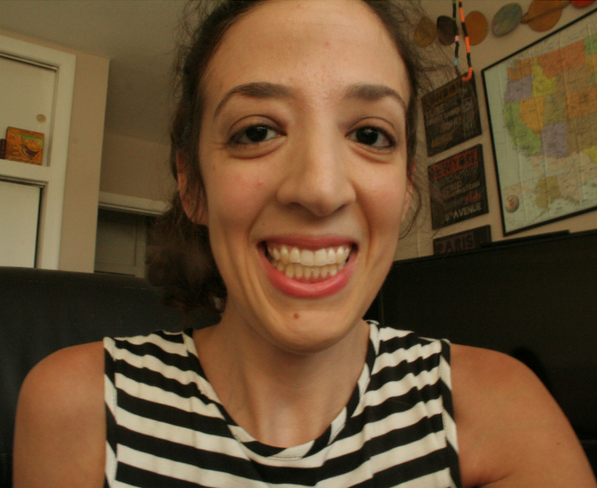
Molly Sarah: It's called marfanoid habitus and, basically, vascular EDS and Marfan present the same way. So I looked a certain way, and when the rheumatologist walked in the room, he basically saw Marfan syndrom (which is also pretty rare to diagnose). He said he waited about 35 years to actually get an EDS case, so you can imagine his surprise that one was sitting in his office.
Lilly Stairs: Oh, my gosh.
Molly Sarah: But I mean, that doesn't excuse his behavior - and this is one of the top-ranked rheumatologists in the country. I think he's one of the Top 50 or something, and he likes to brag about it. I mean, this is a really highly respected doctor that treated me this way.
So, again, let me just put this out there - just because a doctor comes highly recommended or has high praise in his reviews, it doesn't mean that his bedside manner is going to reflect that.
Lilly Stairs: Well, and I think that's a really important point. That's something that I've personally experienced too, coming from Boston. Originally, we had so many incredible - the really top medical centers in the world. I've actually had very similar experiences with rheumatologists who had the worst bedside manner of anyone I've ever been to, and they would be considered some of the best rheumatologists in the world. But it was one of the worst appointments I'd ever been to.
And so you're right in that sometimes finding a doctor - a good doctor - can be like finding a unicorn. You know, someone who has it all, right?

Lilly Stairs: So there's a couple of different things that I want to dig into and I appreciate also. I know that you're really passionate about bringing awareness to the fact that vascular EDS - it's not a death sentence, and so I appreciate you talking about that.
Can you also tell us a little bit more about some of the experiences that you've been through since your diagnosis? I know you had just shared with me that you have had a hysterectomy. Can you tell us a little bit more about what that's like as a young 20-something, having to go through getting a hysterectomy?
Molly Sarah: Oh, yeah, of course. The whole thing was actually everyone's medical nightmare. And, again, to relate this back to the whole purpose of this podcast, patients have power, I did not feel last year that I had any power as a patient.
What happened initially was - I'm going to try to keep this concise - initially, I was told I had a very bad UTI which tends to happen. In vascular Ehlers-Danlos, we actually are prone to UTIs and things like that in our urinary tract. It's more autoimmune than the other types of EDS in a lot of ways. We have a bunch of different problems that can serve as autoimmune as opposed to other things, they're the migraines and stuff like that, the basic stuff.
So I was told that it was my regular monthly UTI, surprise, and that's why I was peeing blood. Turns out that first doctor had no idea what she was talking about. I went to the emergency room because when you pee blood, that's what you do. You take your butt to the emergency room.
Lilly Stairs: Of course.
Molly Sarah: So I did, and I sat there for five hours and they sent me home with antibiotics. Nothing got better. Fast forward to a week later, I'm still seeing blood and I'm still thinking it's from peeing - but it's not, as I later find out.
I take an Uber to the ER again and I tell them, look, you treated me last week. This is not getting any better. In fact, it's getting worse and it actually really hurts. So they put me in a bed in the hallway. They tell me,
"This is not a problem that we'd have to call a GYN down for, so we're just going to send you home. It'll stop by itself."
Okay.
So, again, fast forward three days later. I'm in the ER again. This time - If you want to stop listening right now, this gets really graphic, so...
I came to them in the middle of the night with my cervix in a cup. My cervix had fallen out in the toilet in the middle of the night. I went up to go pee and actually my mom had to get my cervix out of the toilet because I was a little bit busy screaming.
Lilly Stairs: No. I didn't even know that could happen!
Molly Sarah: Yeah, my cervix fell out. So I actually was rushed into emergency surgery. Three days after this whole thing happened, the surgeon actually came out and told my mom that there was not much left for him to take out. My uterus - actually, he removed it - fell apart in his hands. That's connective tissue disease. He didn't have a whole, intact uterus to send to pathology.
There was nothing left because, in the ER, they didn't actually look. And so they missed it.
And now, I've actually seen a gynecologist who claimed to be familiar with EDS and being knowledgeable in it. And it turns out this whole thing happened and was exacerbated because the physician prescribed me Provera, and Provera is absolutely contraindicated in EDS. Actually, if you look the statistics, Provera and uterine rupture and cervical prolapse are actually extremely common with this drug. And now, if you have connective tissue disease, it just speeds up the process.
So the doctor that claimed to be knowledgeable in this and prescribed this drug and I trusted him. Again, I've had no power. I just wanted to feel better.
Lilly Stairs: Yeah.
Molly Sarah: He prescribed this and set this whole thing in motion. I should've started with that, but I spent 89 days until I was rushed into emergency surgery at four o'clock in the morning on June 3rd, and I was 28. I'm 29 now, and I had no choice, but my doctor got in there and I was told later that they could not save my fallopian tubes.
There was no way to access my eggs, so I cannot have biological children because of this entire mess that doctors without the knowledge of my illness put me in. The situation where now, I cannot have children of my own, because there's no way to get to my eggs without fallopian tubes.
But they couldn't save it because of everything that happened and everything that was ignored.
Lilly Stairs: I am just sitting here in absolute shock. I have never heard of a story like this. And I applaud your bravery for sharing this because I know this is really deeply personal, and I am so thankful to you for sharing that with our community because I think that stories like this are so important in so many ways.
One, we're breaking down these stigmas that are associated with talking about quote unquote "women's issues", and then you're also bringing light and awareness to the fact that you need to trust your gut and if something is not right, or you feel something might not be right, to go seek a second opinion, to go keep pushing on your own.
And I mean, you even were pushing. You were going to the ER. You were saying "hey, something's not right. Something's not right, but being turned away." I mean, that just stems back to issues that we have in our healthcare system. And so, unfortunately, you were not the first person that I've heard to be kind of misdiagnosed or improperly triaged in the ER. I've had it happen to myself, been back and in-out of the ER three times, I mean, it's really a disgrace.
So, thank you for sharing that.
Lilly Stairs: And I really am just blown away by your positive attitude that you have, even given everything you've been through. My question is now, as, again, as 20-something year-old woman who has now had a hysterectomy and is living with a few different rare diseases, how does this impact your social life, your dating life?
Molly Sarah: I haven't dated in a while. But basically it's got to come up because I have to think about getting back into dating again and, you know, nobody wants to be alone.
So I mean, having to sit across the table from someone that you really like and that you think "This is going well" and maybe this person could really make this to be something and then you have to tell them that you can't have biological children and then everything goes to hell.

Molly Sarah: That's how I process it in my head and it really does keep me from wanting to date. Because what if you find the right person but that person wants biological children? And it does pose those issues of being 29 and pretty much everyone I know now is either about to have a child or has a child. And I'm a woman, and it's natural to want children.
Yes, I want to be a mother, and if you don't, that's fine. So I know a couple of people who have had hysterectomies, a couple of #hystersisters, but didn't want children, so it was fine with them. But, getting personal - it was not fine with me.
It was not fine with me at all.
I do want children. Whether I would have been able to carry her myself with EDS or have gotten a surrogate would've been a personal choice of what I wanted to risk, but that didn't mean I didn't want them. So it just became... It's difficult. It definitely is difficult, I'm not going to sugarcoat, and I don't even know if I can be super positive about that aspect of my entire journey.
Everything else is - I can make a joke about the whole thing, that's just my personality, but this is just the one thing and it's still so raw. And I don't mind sharing it, but it's just so... It did change my entire life. Even EDS has not changed my life nearly as much as realizing that I can't be a mother without a whole bunch of other things going on first.
Lilly Stairs: Yeah. Wow, well, thank you for sharing that. This is something a lot of women with chronic illness really, really struggle with. And I know there is this constant discussion in the chronic illness community around "Can I have kids," and this fear of passing your diseases on to your kids. That might prevent you from wanting to have biological children, or "Can I be on my medicine and have a child and breastfeed" and all of that.
And so these are certainly discussions that are happening and I, again, appreciate your candor when discussing this.
Lilly Stairs: So, I think, shifting gears a little bit - I was telling you before this, I was poking around on your blog (which is just so absolutely well-written, by the way).
But I wanted to have you explain aloud this analogy that you've come up with for what it's like to live with EDS, because I think it was such a spot-on analogy and something that probably a lot of other people with EDS and chronic illness can really do.
Molly Sarah: That was from "For Those Who Wonder But Don't Want To Ask", and I think I was telling you before that this actually didn't land with a lot of people.
I actually posted it in one EDS and it got completely ignored, and I'm so surprised that it really resonated with you as much as it did because it just didn't land (and I thought the analogy was good too when I wrote it). I don't usually bite when I write, when I read it back, but this actually read back really well to me.
So, basically - I feel like with EDS in particular, but I think it can be any kind of illness that comes with other things - I call them accessories. And Ehlers-Danlos comes with a lot of accessories, and none of them match my outfit. Let me find a good quote that I wrote in here that really gets the point across.

Lilly Stairs: As you're looking, I do love that quote, "accessories that don't match".
Molly Sarah: Right. I have to wear this EDS outfit all the time, but the accessories that come with it just makes it even uglier.
Molly Sarah: I used to call EDS:
"The party that nobody wanted to come to, and we go home with a goodie bag full of crap that no one wanted."
Lilly Stairs: You've got a lot of good analogies.
Molly Sarah: I think that was the best one. That one landed with the most people (I think my mom wants that one). Okay, I'll just read this quote and then I'll kind of explain where my brain was:
"Imagine you're trying to unpack your dream home. The movers have left and now everything is stacked in boxes, waiting to be unpacked. You're excited because this is the home you've always wanted. You have energy and you can't wait to see what your home looks like with all of your things in it.
Then, you have to find the box cutter. You left it right there, but now it's not there. You remember you left it in the kitchen. You take the short walk to the kitchen and get your box cutter. Now it's time to unpack."
Molly Sarah: And it feels like with EDS, every time you think you're going ahead, there's something in your way again. I think that's what it was for me. It feels like something's right behind you, "You forgot me!" and taps you on the shoulder, kind of. Nope, there's still more things to do before you can get to what you want to do.
And it's kind of - I know I'm trying to explain this box analogy with the moving - but really it's kind of that friend that won't go home, that keeps tapping you on the shoulder, "Hey, I'm here. Pay attention to me. Pay attention to me". But I'm doing something else right now. I want to unpack these boxes. I bought my dream home, now let me unpack these boxes. But EDS is constantly behind, "Pay attention to me. Pay attention to me."
And it never, ever stops. Even when I'm sleeping, it doesn't stop because it affects my sleep.
You can't escape it. It's just there's always something else in the way, so you just live in this house with these unpacked boxes because, screw it. Every time you attempt to open a box, it's going to come up behind you again.

Lilly Stairs: You had so many great analogies in there and I'm really excited for us to pull those out and share them with the larger community, because I think they're really going to resonate.
Lilly Stairs: This has been such an insightful and moving and funny and fun experience to go through with you and to share this time together. I want to wrap up the podcast by asking you what Patients Have Power" means to you.
Molly Sarah: It means everything to me. I'm actually wearing my Breakthrough Crew t-shirt right now!
Lilly Stairs: Yay!
Molly Sarah: I was expecting this to be a video podcast, like, all right and I put on the shirt and everything because I was excited.
But really, it's everything to me.
It explains my entire journey. I know I didn't really explain EDS in a way that really explained what I went through. I wasn't clinical about it. I hate being clinical about it. I mean, people can always email me (my email address is on my site if you want to ask clinical questions).
But really, Patients Have Power is what I'm all about because it was taken from me last year, and my whole journey is getting back that power.
I didn't have power over what happened to my body, and I think there's a lot of stigma around talking about not being in control. And I think Patients Have Power really gets back that control to patients. Male and female, it doesn't matter what you are. I think really feeling like you have control again because there are other people out there that also, at one time, felt powerless, and maybe they even feel powerless now.
But finding that community of people through you guys and being able to advocate and be a part of that - it's everything.
Lilly Stairs: That is a beautiful way to end the podcast. Thank you so much, Molly, for joining us today and for sharing your story. I am so excited for us to keep collaborating and I encourage all of you listeners to go check out Molly Sarah. We will share all of her social media links below, but continue to follow her journey and I think we can all learn something from her very positive spirit.
Thank you, Molly.
Molly Sarah: Oh, you're welcome. I was really happy to be able to do this and just to be able to reach people. This little platform that I have on the internet, you just made it a little bit bigger for me, so I'm really thankful!
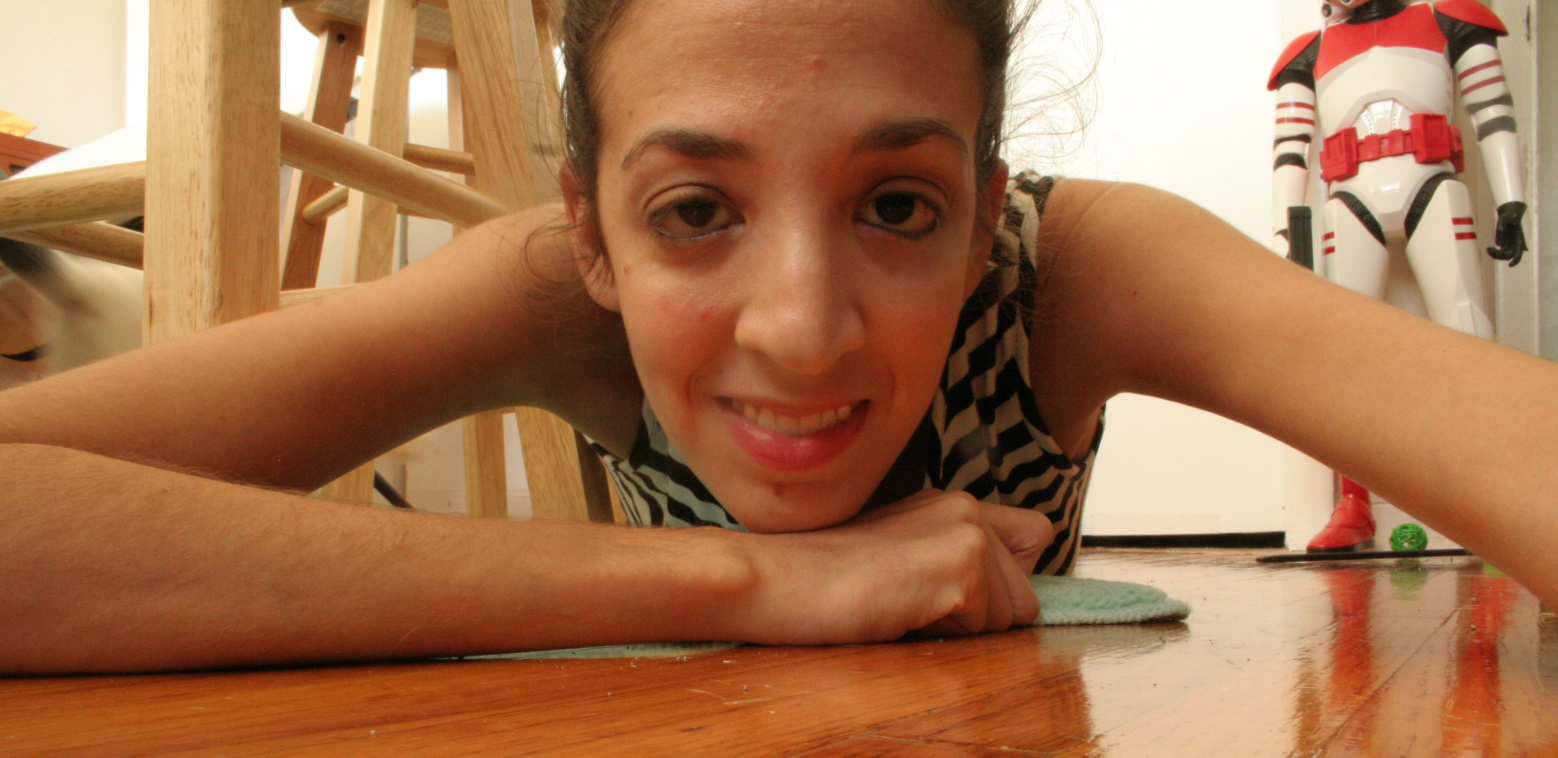
Keep following Molly Sarah's journey on her website Molly Sarah Writes and twitter @MolSarahWrites!


